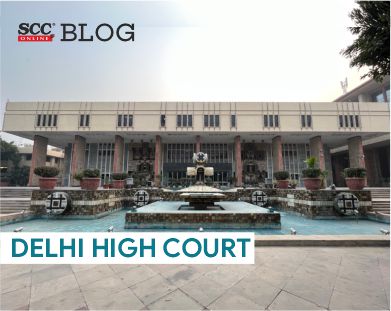Delhi High Court: In an appeal under Section 13 of the Commercial Courts Act, 2015 read with Section 37 of the Arbitration and Conciliation Act, 1996 (“Act, 1996”) has been filed challenging the Common Order dated 24-01-2022 passed by the District Judge (Commercial) Central District, Tis Hazari, dismissing both the petitions under Section 34 of the Act, 1996, preferred by the appellant and the respondent herein against the Arbitral Award dated 30-01-2019, a division bench of Neena Bansal Krishna and Suresh Kumar Kait, JJ., concluded that no grounds for interference under Section 37 of Arbitration Act, 1996 have been made out and the challenge to the findings of the Arbitrator are essentially based on reappreciation of evidence which is beyond the scope of Section 37 of the Act.
M/s Sweka Powertech Engineers Pvt. Ltd. (respondent) was awarded a work order by MCD for providing street light arrangement and ancillary work on different roads/streets of the Karol Bagh Zone for the Commonwealth Games Project. During the execution of work, certain disputes arose between the parties, and a notice was issued by the respondent to the appellant. However, on receiving no response from the appellant, a petition under Section 11 of the Act, 1996 was preferred and a sole arbitrator was appointed.
The Sole arbitrator passed an Award by which Claim Nos. 1, 2, 5 & 6 i.e., payment of final bill; refund of security; the interest @ 9% per annum, and the costs were allowed but Claim Nos. 3 and 4 were not pressed by the claimant and dismissed the counter-claim of the appellant. Both the appellant as well as respondent, have challenged the order under Section 34 of the Act, 1996, which was dismissed. Assailing this, the present appeal was filed challenging Claim Nos. 1, 2, 5, 6 in the common order passed under Section 34 of the Act, 1996 on the grounds of patent illegality.
Placing reliance on MMTC Limited v. Vedanta Ltd, (2019) 4 SCC 163, the Court remarked that the scope of a challenge under Section 34 and Section 37 of the Act, 1996 is limited to the grounds stipulated in Section 34.
On Claim No.1 regarding the award being based on no Evidence, the Court noted that the Arbitrator as well as the District Judge in the order under Section 34 of the Act, 1996 has rightly appreciated the noting’s relied upon by the respondent by observing that they were not recommendatory but contained factual data based on which the calculation of the claim amount was made. Thus, the Court concluded that claim No.1 is supported by reasons based on the appreciation of the evidence and does not merit any interference under Section 37 of the Act.
On Claim No. 2 regarding the refund of the security Amount of Rs. 19,88,382, the Court further noted that the learned Arbitrator has duly supported the grant of refund of the security amount with sufficient reasons which are not amenable to reappreciation under Section 34 or 37 of the Act, 1996. On claim no. 5 and 6 regarding pendente lite interest and cost of arbitration respectively, the Court found no perversity or patent illegality.
Thus, the Court held that no grounds for interference under Section 37 of the Act, 1996 were made out and the challenge to the findings of the Arbitrator are essentially based on the reappreciation of evidence which is beyond the scope of Section 37 of the Act.
[Municipal Corporation of Delhi v. Sweka Powertech Engineers Pvt. Ltd., 2023 SCC OnLine Del 833, decided on 15-02-2023]
Advocates who appeared in this case:
Mr. Akhil Mittal, Standing Counsel with Ms. Shreya Chopra, Advocate for the Appellant;
Mr. Gaurav Saria, Ms. Charul Sarin & Mr. Harish Kumar, Advocates for the Respondent.
*Arunima Bose, Editorial Assistant has reported this brief.







